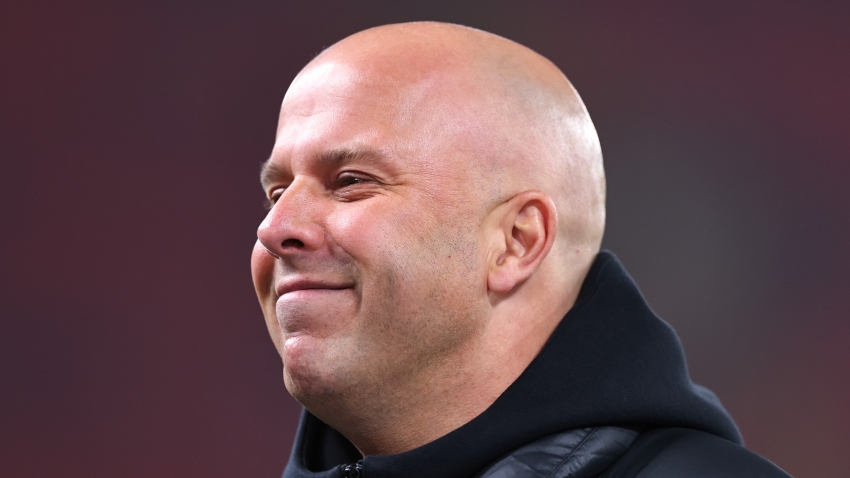Jonathan Sayer thought it would be straightforward when he opted to put aside his life as a stage writer and actor to take over the ownership and running of his boyhood football club, seventh-tier Ashton United.
Yet before his first season as an owner in England’s Northern Premier League was a month old, he had been rudely awoken to the harsh realities of life in the world of semi-professional football.
Sayer is better known as the co-writer and star of the West End hit show ‘The Play That Goes Wrong’ and its subsequent BBC adaptations.
The title might have been a better fit for his first year at the helm at Ashton, the club he bought in 2019 in partnership with his dad but which quickly presented far greater challenges than either of them imagined.
Those struggles are the subject of Sayer’s book ‘Nowhere to Run’ which is published on Thursday, an at times comical but mostly revealing look at the realities of balancing a tight budget in the trenches of non-league while striving to keep supporters happy.
Sayer and his dad bought Ashton immediately following relegation after a single season in the National League North, the promised land of the sixth tier that the club had ultimately not been cut out to survive in.
At a meeting to introduce himself to fans, in a rash move he would quickly come to regret, he promised supporters instant promotion. The die was cast for a turbulent campaign.
“The year we were relegated I was filming a TV show in (nearby) Manchester so I was around to go to games on Saturdays a bit more,” Sayer told the PA news agency. “There was a tweet that said the club needed help, so my involvement began like that. I did not at that stage say ‘I’ll buy the club’.
“I’ve had a lot of luck in life and this felt like a way to put back into my community. They had a gap with the wages which I now realise is just an ongoing thing in non-league football.
“I thought it would be a really fun thing to do, particularly for me and my dad to have a project together. I thought it would be easy – put a bit of funding in, be really organised, and it’ll be great.”
The book charts the progress of the pair’s first season in charge, the 2019-20 campaign that was curtailed at non-league level by the Covid-19 pandemic and ultimately expunged from the records.
The season was not a successful one. Despite significantly increasing the playing budget and taking the risk of putting all players on contracts – highly unusual for a club in the seventh tier – in a bid to secure promotion, the team soon became mired in a relegation fight.
Rivals caustically dubbed them ‘Cashton United’, and despite Sayer’s involvement raising the profile of the club locally, the squad failed to gel and results failed to arrive. Despite the investment, there never seemed to be enough money to pay the bills.
There was also farce. After an internal falling out, a club member whom Sayer calls “part of the old guard” absconded with the only keys to the stadium dressing rooms.
A TV expensively installed for the manager to go over footage of matches with the squad stubbornly refused to work even a year later, and an outdoor bar built to raise matchday revenue was shuttered after the council pointed out they had never granted planning permission.
But it was on the pitch where Sayer’s worst nightmares became realised.
“I thought ‘we’ve been relegated, we’ve increased the budget, therefore we’ll go back up’,” he says. “There was all this momentum. But the reality was so hard. The first three or four months we lost a lot of matches.
“I feel like I’m personally letting everyone down when we lose. It’s a robust feedback environment, football. It can be brutal. I’m a sensitive soul and I feel things very acutely.
“Theatre can be similar. You get harsh reviews, people either laugh or they don’t. The difference is that on a show day I can affect things, I can rewrite things and I can rehearse, and all the energy goes into performing.
“With this, you can’t do anything. You have to stand there like an absolute tool. You can clap and cheer, or you can go for the Sven (Goran Eriksson) emotionless approach.”
It is four years since Ashton were relegated to the Northern Premier League. Sayer and his dad are still awaiting the elusive promotion they promised fans in 2019.
Yet this remains a long-term project. After 14th-place finishes in each of their full seasons (Covid also saw the 2020-21 campaign abandoned), there is optimism that lessons have been learnt to finally put the club on track for the step up.
“For me football is just like a play,” says Sayer. “I don’t understand how you can like theatre and not like football.
“It’s exactly the same – it’s people coming together and having shared moments of catharsis and emotion and watching a story with characters play out.”





























